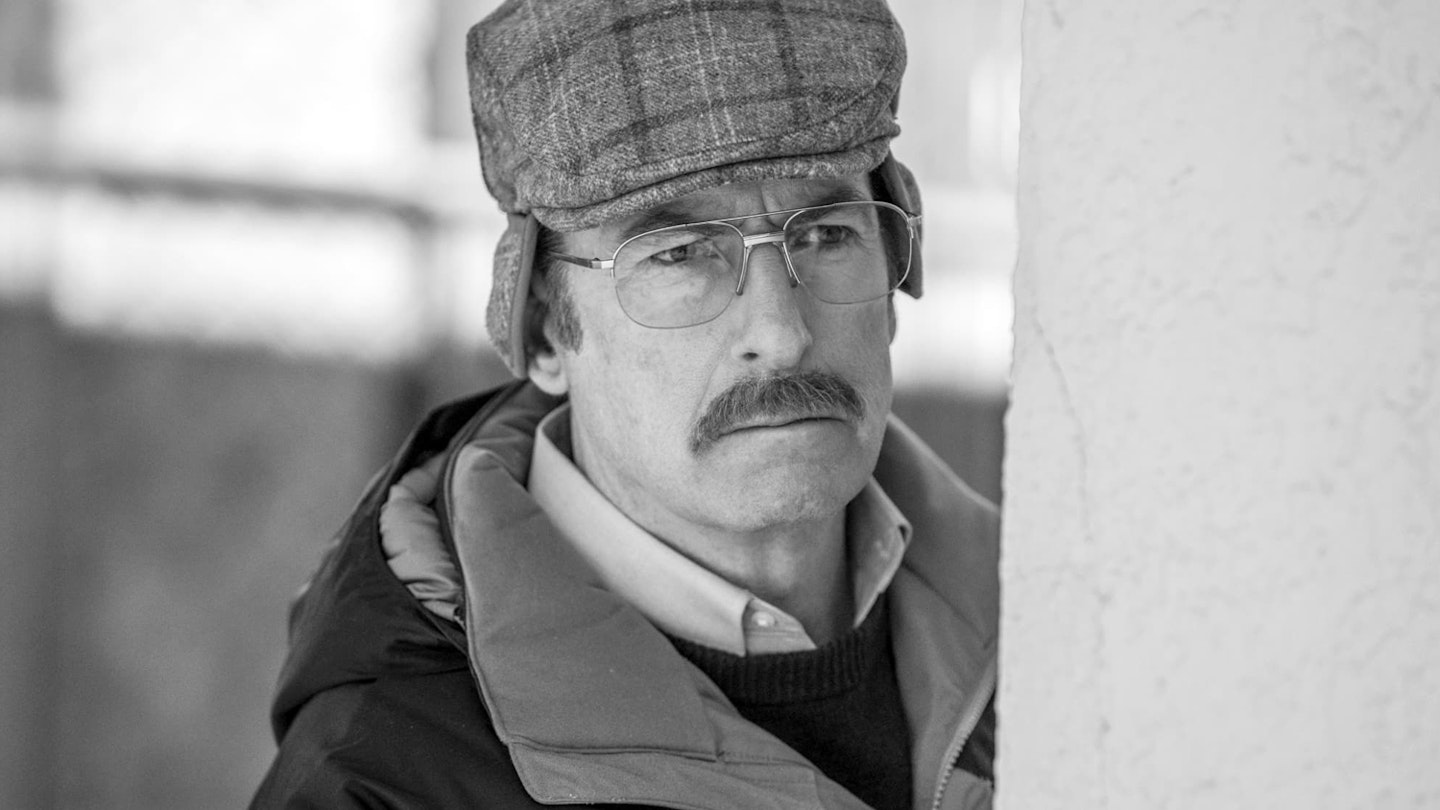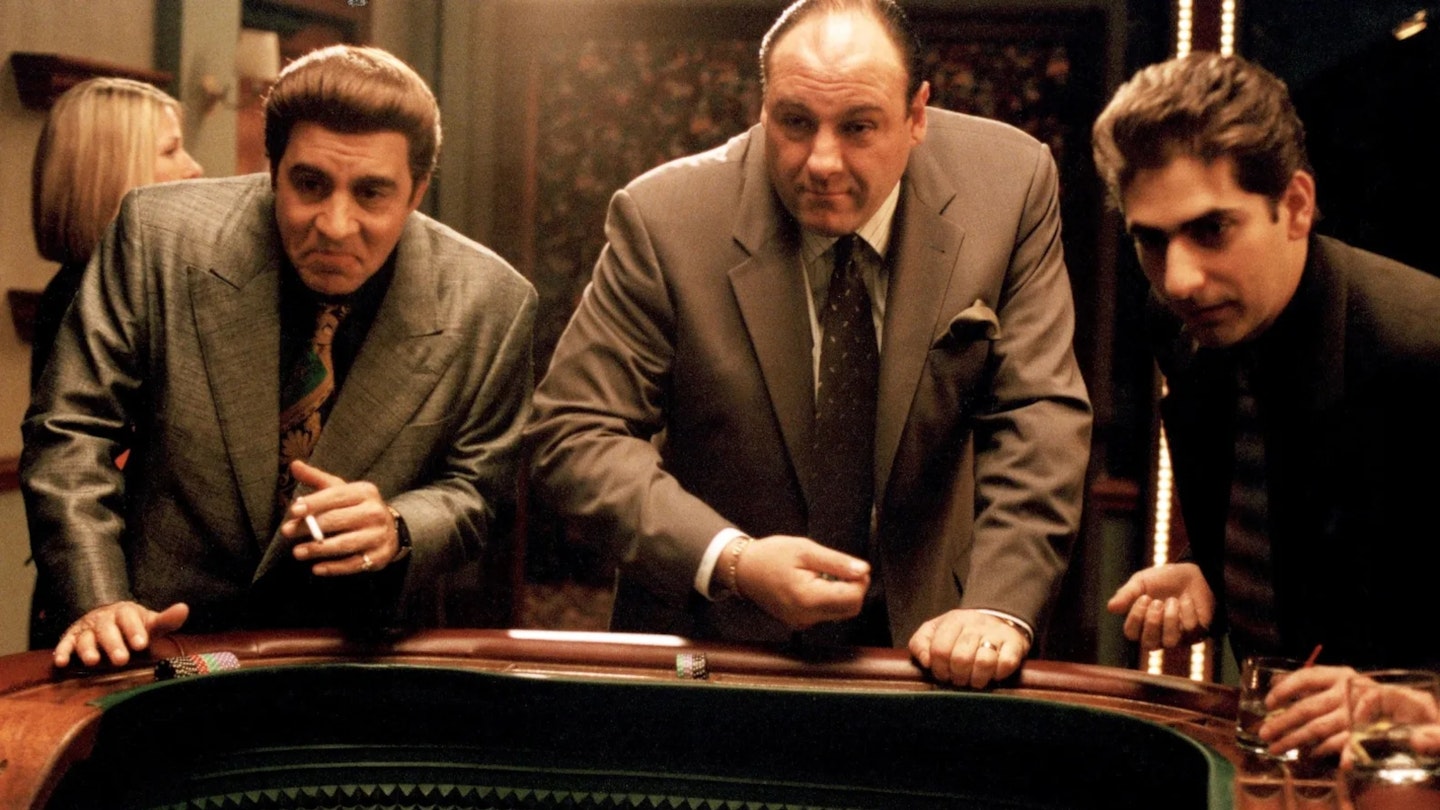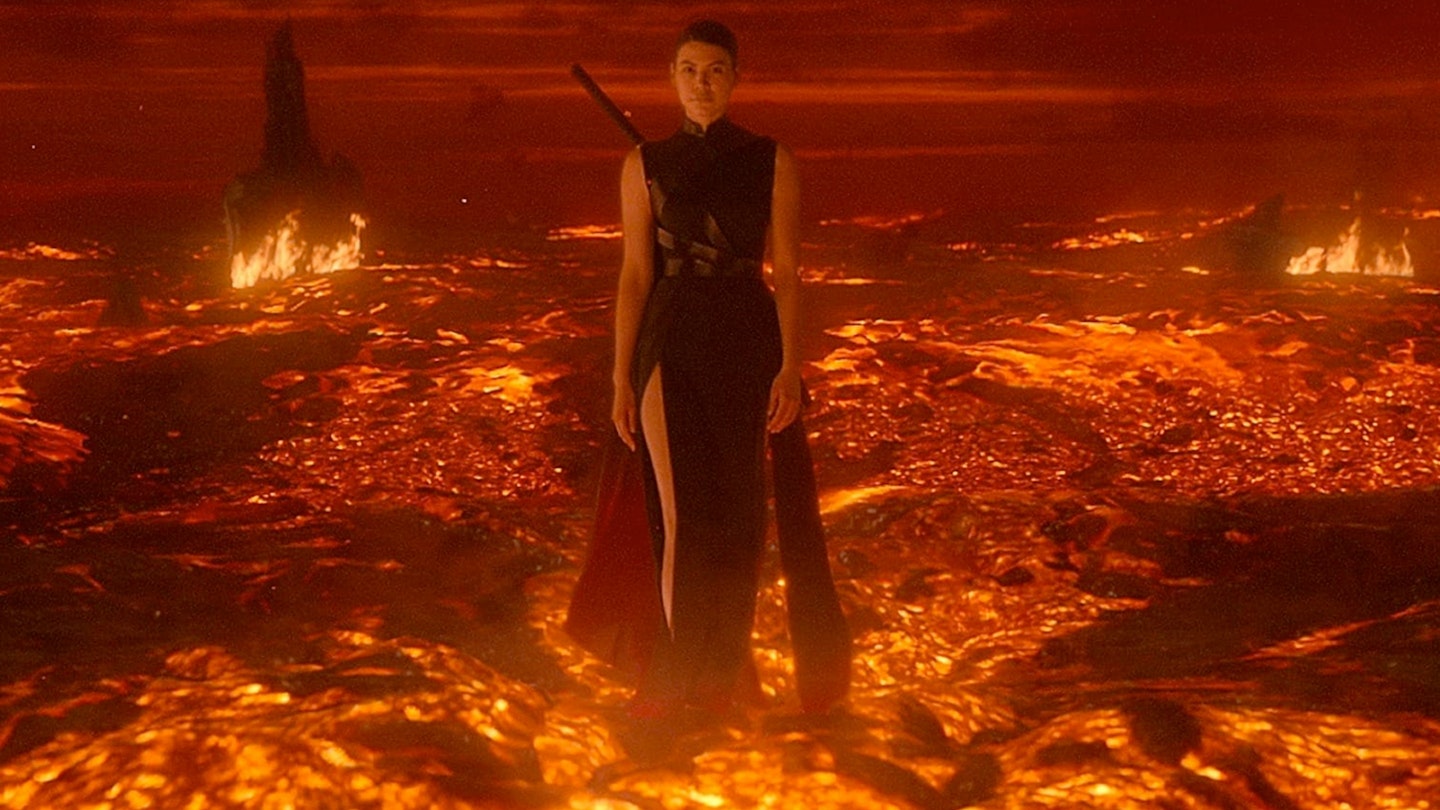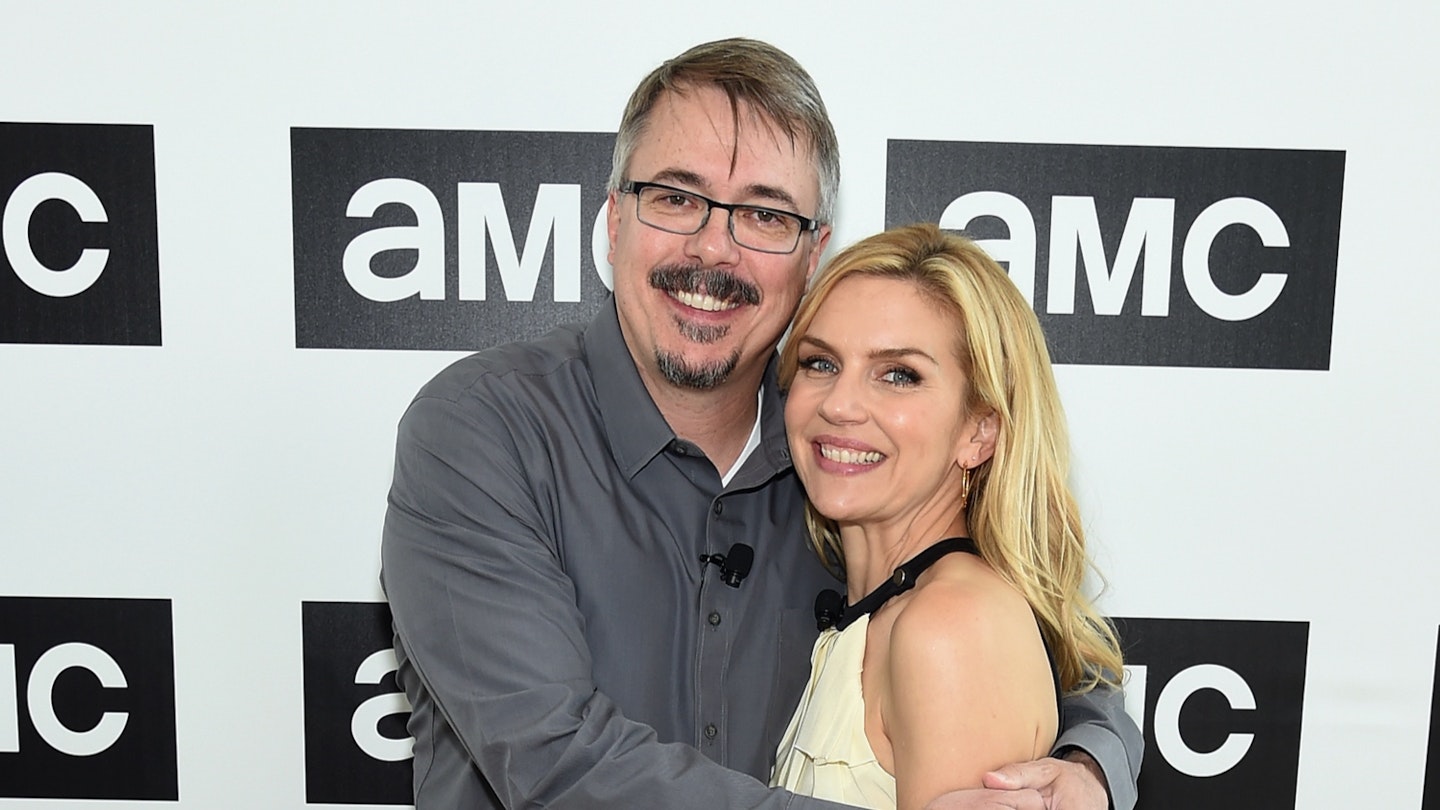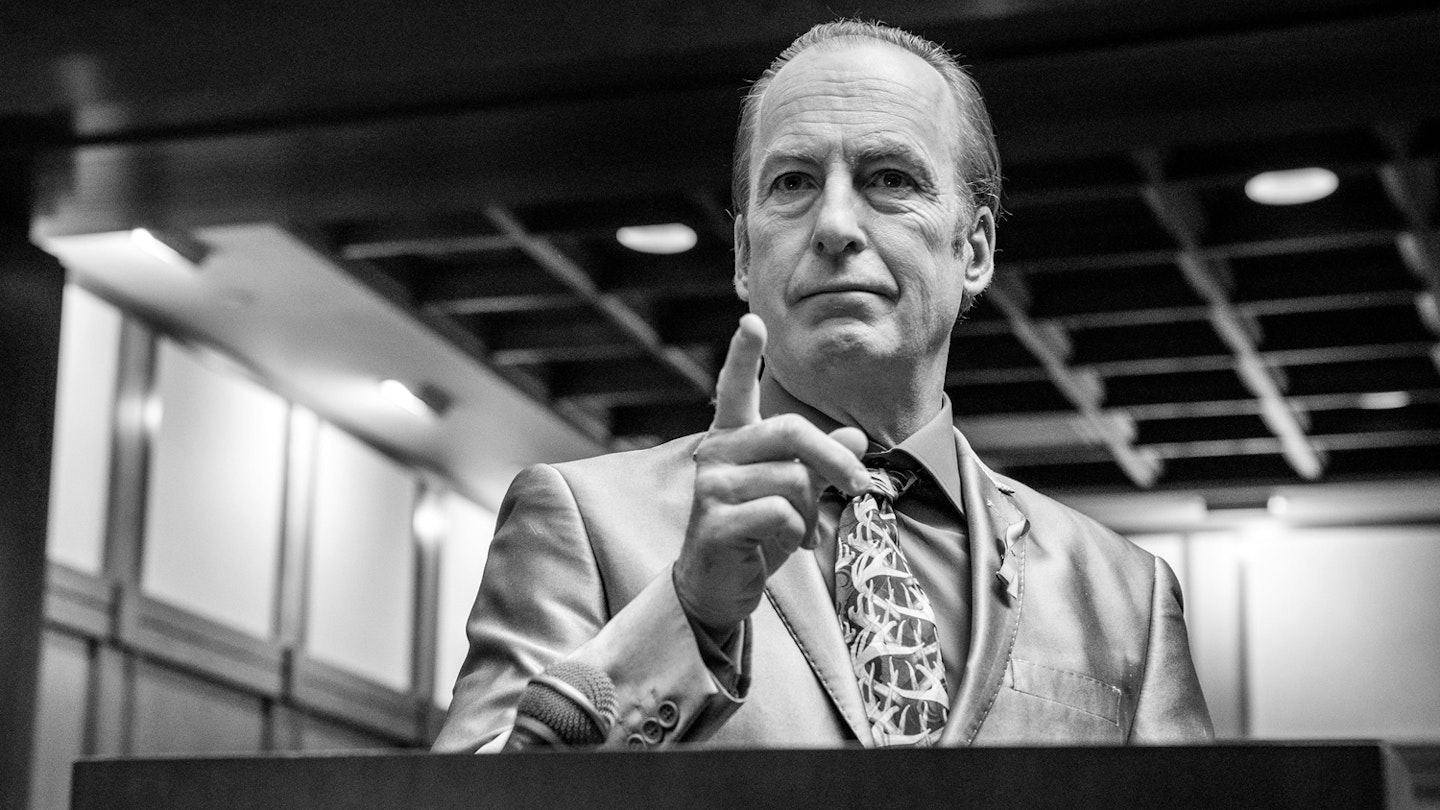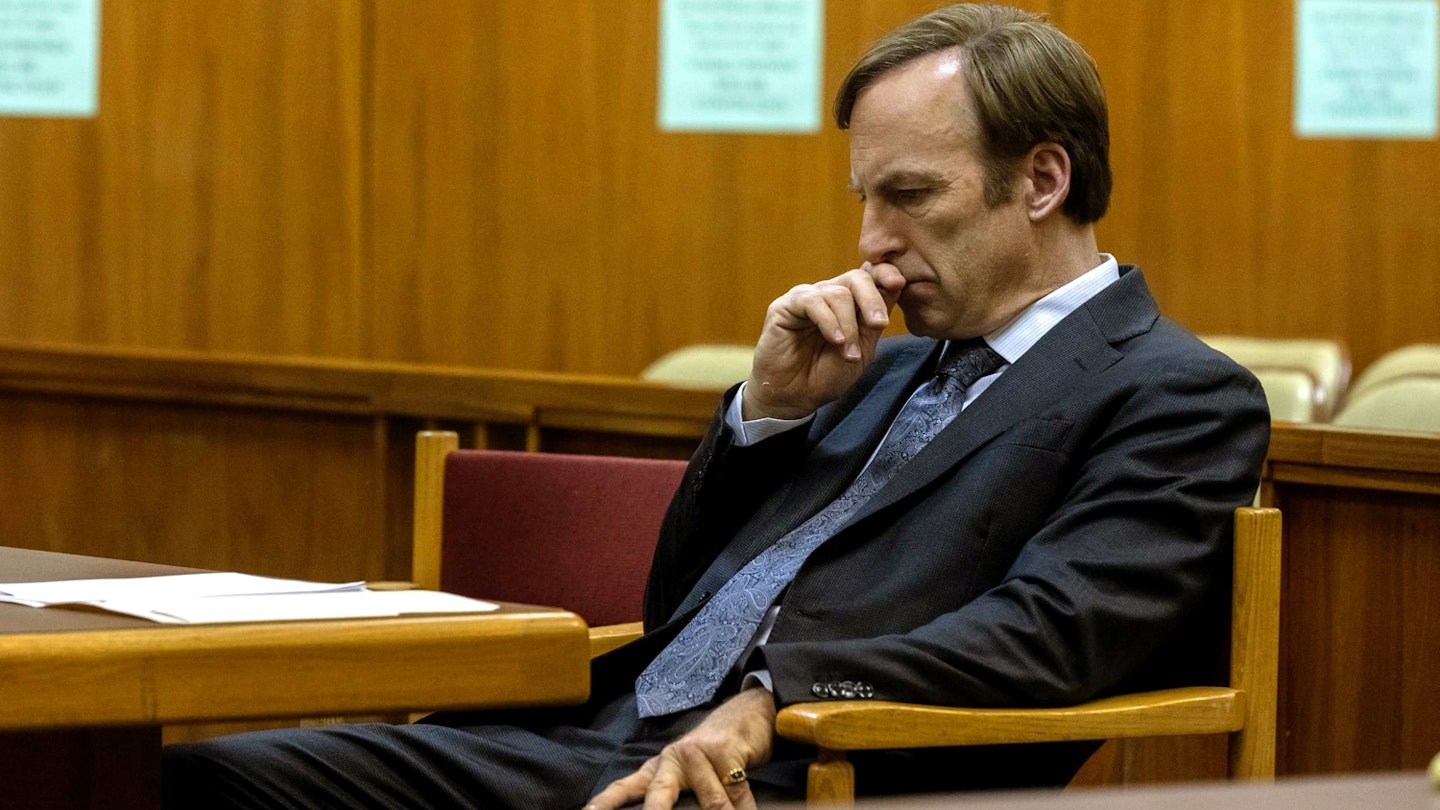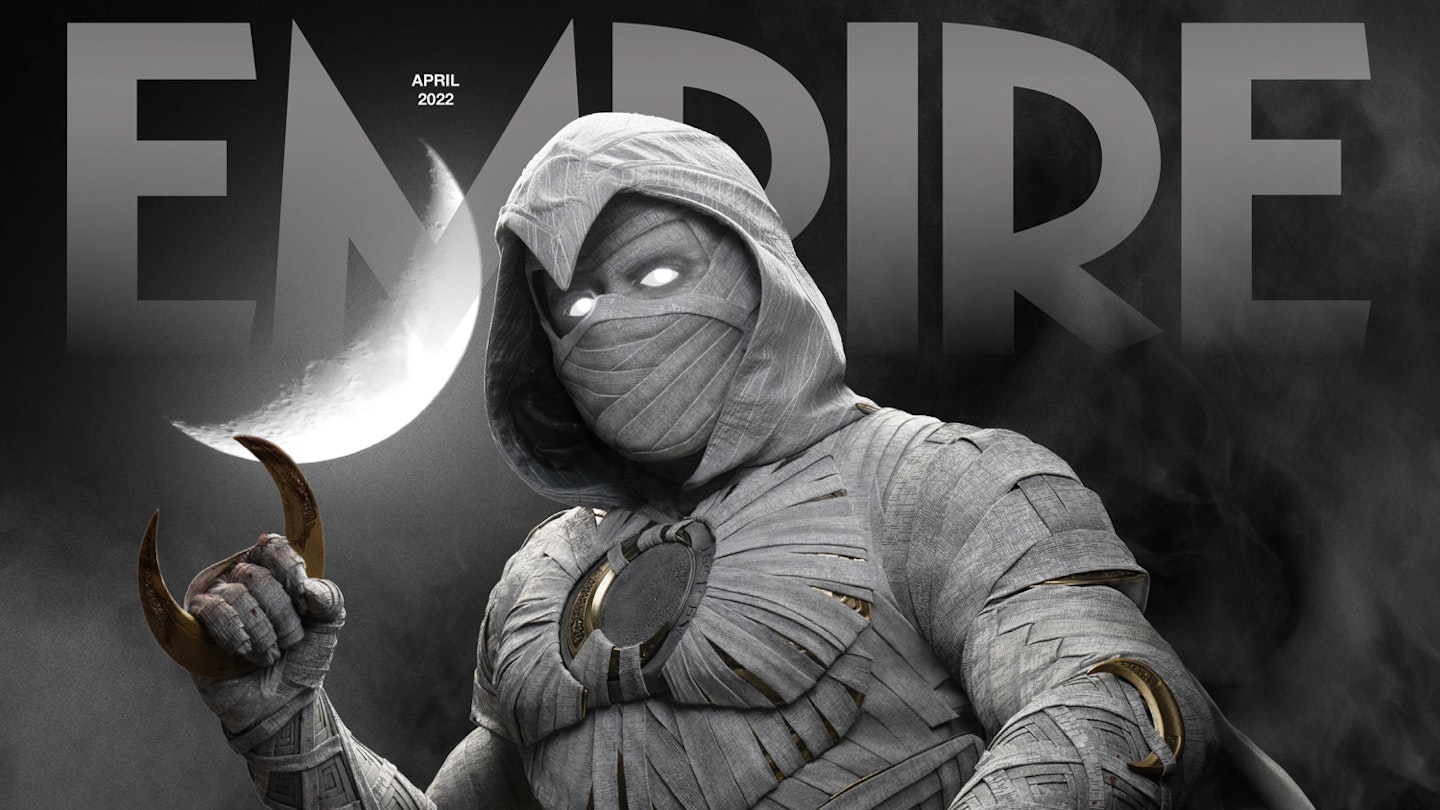Episodes viewed: 13 of 13
Streaming on: Netflix
WARNING: Contains spoilers for all six seasons, and the Season 6 finale.
Better Call Saul loves a disorienting cold open. A couple of elderly cyclists in shell-suits riding round their neighbourhood complaining about the gaudy red colour of a newly painted house. A steady pan across a scrubby wilderness alighting on a seemingly random bit of weed, and a bloody sliver of broken glass. The meticulous creation of a sculpture made of lucite. Throughout all these beautiful vignettes, we’re thinking, ‘What the hell does any of this have to do with Jimmy and Kim and Nacho and Lalo and Mike and Gus?’. Eventually the details are pieced together and by the end of each episode, their wider significance becomes clear. This narrative trickery works brilliantly because the whole show is built around key puzzles: How and why does Jimmy become Saul? What on earth happens to Kim that she’s never mentioned in the parent show? How does Jimmy/Saul extricate himself from… everything? And why does Jimmy/Saul eventually turn into Gene who works in a branch of Cinnabon in Omaha, Nebraska?
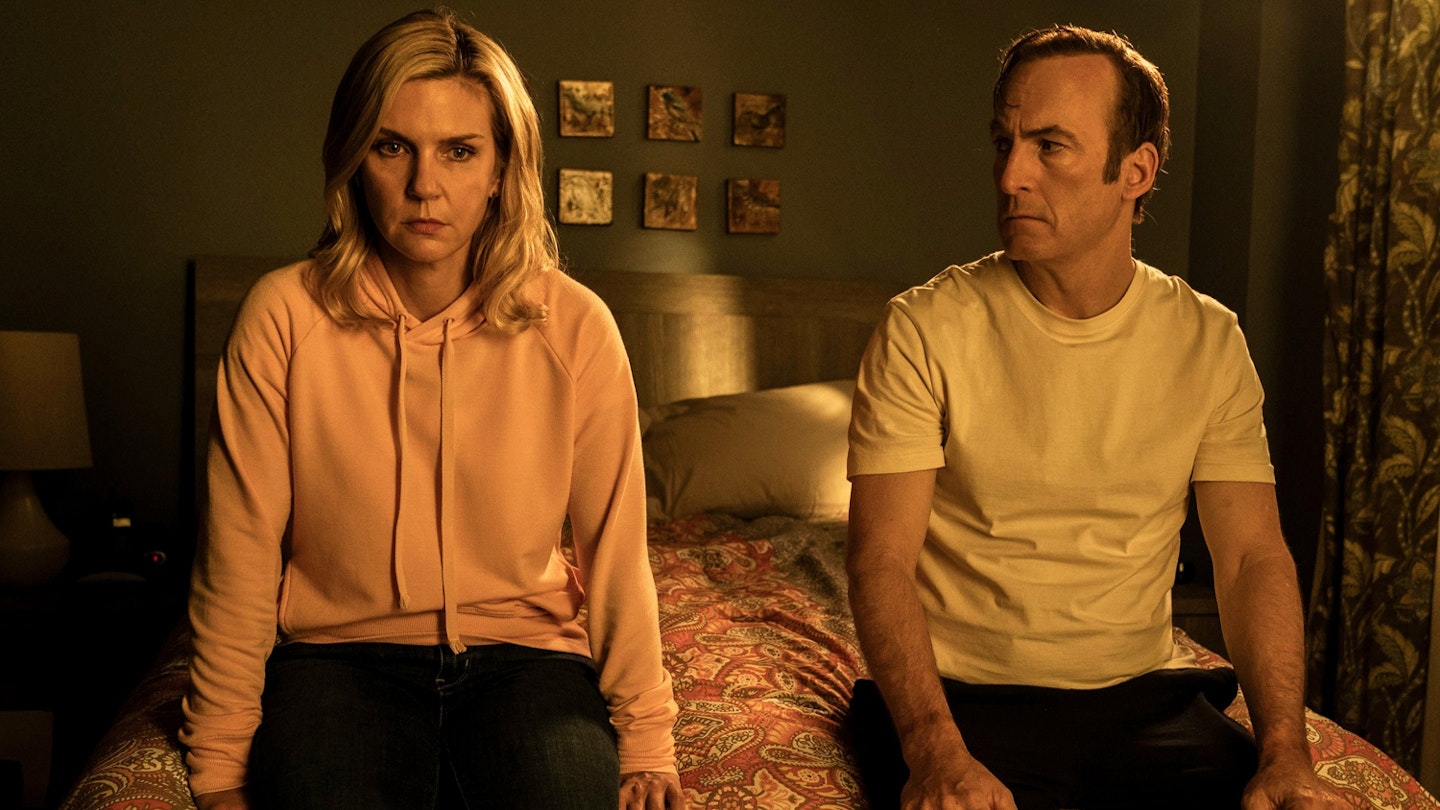
This final season also underlines how the show has melded genres so effectively. It’s part legal/relationship drama following Jimmy/Saul and wife Kim’s careers and life together, and part crime thriller tracing Jimmy’s tragic involvement with “connected” types Lalo, Gus and Mike. The mid-season finale weaves those strands together spectacularly, ending with a stunning act of violence committed by the psychopathic Lalo in Jimmy and Kim’s home. The ramifications of that moment become spectacularly clear in the next two episodes, the first of which is a masterpiece of acutely sustained tension told almost in real time; while the second takes its sweet time to delve as deep as it ever has into the core characters. This episode’s opening montage of Saul and Kim trying to get on with their lives, to the soundtrack of Harry Nilsson’s song “Perfect Day” is a work of art. Witness the cut from Jimmy mopping up his red marinara sauce at lunch to Mike wiping rivulets of blood from their floorboards. The ensuing confrontation between Kim and Jimmy, brutally exposing the raw truth at the heart of their relationship, is as scary as the gruesome fight to the death between Gus and Lalo. But the stakes here are even higher, because Kim and Jimmy are soulmates, and we’re rooting for them to the bitter end.
Rhea Seehorn and Bob Odenkirk are in a league of their own.
For a show set in a world so steeped in crime and violence, it’s startling just how calamitous an impact this one killing has on Kim and Jimmy. Because it was all fun and games until someone got hurt (“Fun And Games” being the title of Episode 9, effectively the finale of the whole cartel storyline). Kim’s raw feeling of guilt corrodes everything for her. Jimmy desperately tries to convince himself, as much as Kim, that they can get over it somehow. But Kim knows the truth. “Together we’re poison”, she says. Rhea Seehorn and Bob Odenkirk are in a league of their own in that scene. As is this whole stupendous series. But it doesn’t end there.
The subsequent four episodes, mostly shot in the grainy black and white style the series adopted from the very start when showing us Jimmy’s future as “Gene” in Omaha, initially feel like a coda to the rest of the series, like a long exhalation of breath after all that tension, turmoil and violence. Now the pace slows for the aftermath. We’re shown a flavour of Saul’s transformation into a mild-mannered Cinnabon manager in a generic shopping mall, and it seems as if he’s retired from nefarious activity for good. The same goes for Kim, living in her own monochrome world working for a sprinkler company, with a dullard boyfriend. But as showrunners Vince Gilligan and Peter Gould beautifully weave in literally colourful flashbacks to poignant encounters with Breaking Bad legends, it becomes increasingly clear that this series is, in the end, all about Jimmy and Kim. Jimmy “became” glitzy, glib showman Saul to get over Kim. He then became Gene because he had no other choice. But Jimmy/Saul/Gene can’t resist the lure of the con, and he comes up with new elaborate schemes in Omaha, starting with the duping of the elderly Marion (played by TV icon Carol Burnett). Marion brilliantly proves to be Saul’s most formidable “mark”. She’s the catalyst for his downfall.
The series finale is no mere coda, as Jimmy and Kim arrive back in Alburquerque for a full legal and emotional reckoning. All the way through this concluding season, the underlying question has been if and how Jimmy and Kim will be punished for their sins, and whether they can find some kind of closure, some kind of peace individually and with each other. How all this plays out in the final episode – first in a masterful courtroom scene, with a truly bravura performance from Bob Odenkirk as Jimmy digs deep into his conscience, for Kim’s sake, and then when Kim shares that cigarette with Jimmy in jail – is surely as ingenious and satisfying a resolution to this story as humanly possible. After six seasons of cartels, cons, plots, betrayals, and cold, hard, chilling murder, all the drama and tension in these final moments comes from the expressions on the faces of Bob Odenkirk and Rhea Seehorn; their delicate little half-smiles and longing looks. Jimmy faces a life in jail. Kim faces her own criminal justice. But they’re OK with each other. And that’s all we need from this particular masterpiece of a story.
